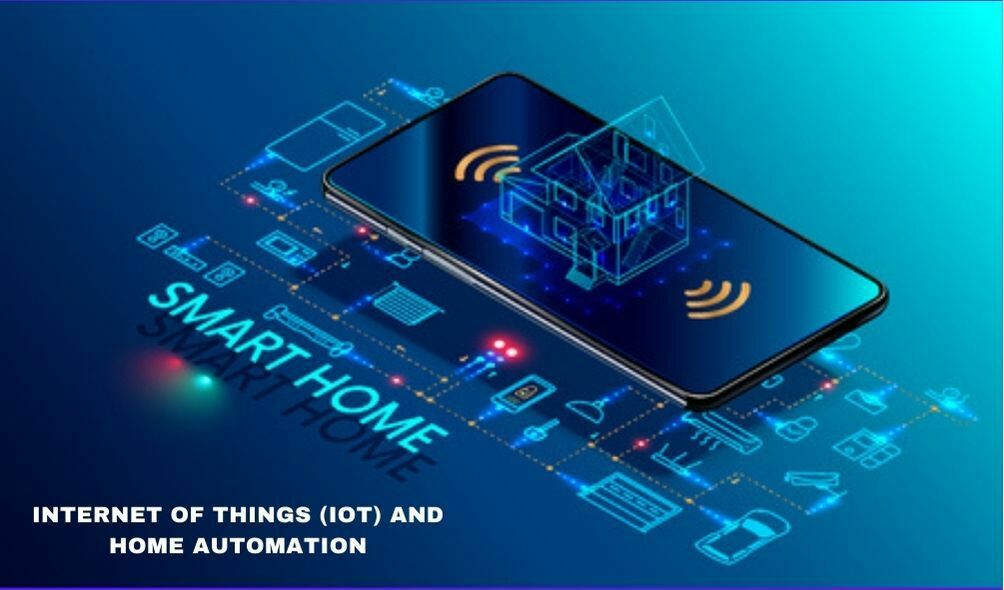In the era of advanced technology, our homes are becoming smarter and more interconnected than ever before. Thanks to the Internet of Things (IoT), the concept of a connected home has transformed into a reality. Smart home technology, enabled by IoT, offers homeowners the ability to control and automate various aspects of their living environment, providing convenience, efficiency, and enhanced security. In this blog, we will delve into the world of IoT and smart home technology, exploring the benefits, applications, and potential future advancements in this exciting field.
What is the Internet of Things (IoT)?
The Internet of Things (IoT) refers to a network of interconnected devices, objects, and sensors that collect and exchange data over the internet. These devices, often embedded with sensors and software, communicate with each other, enabling seamless data transfer and automation. The IoT encompasses a wide range of domains, from industrial settings to healthcare, but one of the most transformative applications has been in the realm of smart homes.
The Rise of Smart Home Technology:
Smart home technology integrates IoT devices and systems to create an intelligent living space. From thermostats and lighting to security systems and appliances, numerous components can be interconnected and controlled through a central hub or mobile app. Here are some key aspects of smart home technology:
1. Home Automation: Smart homes offer automation features that allow homeowners to control various aspects of their homes remotely. Whether it's adjusting the temperature, turning on lights, or managing appliances, automation simplifies daily routines and enhances convenience.
2. Energy Efficiency: IoT-enabled devices can optimize energy consumption by monitoring and adjusting usage based on real-time data. Smart thermostats, for instance, can learn residents' preferences and adjust temperature settings accordingly, resulting in energy savings and lower utility bills.
3. Enhanced Security: Smart home security systems integrate features like video surveillance, motion sensors, and smart locks, providing homeowners with greater control and peace of mind. Real-time alerts and remote monitoring allow for immediate response to potential threats or emergencies.
4. Health and Wellness: IoT devices can play a vital role in monitoring health and wellness within the home environment. From fitness trackers to smart scales and medication reminders, these technologies can help individuals maintain healthier lifestyles and manage their well-being.
Future Possibilities:
The world of IoT and smart home technology is continuously evolving, opening up a realm of possibilities for the future. Here are a few potential advancements to look forward to:
1. Interconnectivity: As IoT ecosystems expand, we can expect greater interconnectivity among devices and systems, allowing for seamless communication and enhanced automation. Imagine a scenario where your smart refrigerator communicates with your grocery store to automatically order items that are running low.
2. Artificial Intelligence (AI): The integration of AI algorithms can enable smarter decision-making within smart home systems. AI-powered virtual assistants can learn residents' preferences, predict their needs, and proactively adjust settings accordingly, further enhancing convenience and personalization.
3. Energy Management: Smart home technology can play a pivotal role in energy management at a larger scale. IoT-enabled homes can communicate with power grids to optimize energy distribution, balance demand, and facilitate the integration of renewable energy sources.
4. Health Monitoring: With advancements in wearable technology and IoT sensors, smart homes can become powerful tools for health monitoring and early detection of medical conditions. Integrated systems can alert caregivers or healthcare providers in case of emergencies or abnormal health indicators.
Conclusion:
The Internet of Things (IoT) and smart home technology have revolutionized the way we interact with our living spaces. From automation and energy efficiency to security and health monitoring, smart homes offer a myriad of benefits for homeowners. As technology continues to advance, we can expect even more exciting developments in the field, further transforming
our homes into intelligent, interconnected ecosystems. With enhanced convenience, efficiency, and security, the future of smart homes looks promising, promising a world where our living spaces are more intuitive and adaptive than ever before.



0 Comments